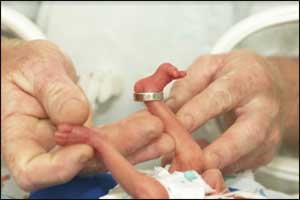- Home
- Medical news & Guidelines
- Anesthesiology
- Cardiology and CTVS
- Critical Care
- Dentistry
- Dermatology
- Diabetes and Endocrinology
- ENT
- Gastroenterology
- Medicine
- Nephrology
- Neurology
- Obstretics-Gynaecology
- Oncology
- Ophthalmology
- Orthopaedics
- Pediatrics-Neonatology
- Psychiatry
- Pulmonology
- Radiology
- Surgery
- Urology
- Laboratory Medicine
- Diet
- Nursing
- Paramedical
- Physiotherapy
- Health news
- Fact Check
- Bone Health Fact Check
- Brain Health Fact Check
- Cancer Related Fact Check
- Child Care Fact Check
- Dental and oral health fact check
- Diabetes and metabolic health fact check
- Diet and Nutrition Fact Check
- Eye and ENT Care Fact Check
- Fitness fact check
- Gut health fact check
- Heart health fact check
- Kidney health fact check
- Medical education fact check
- Men's health fact check
- Respiratory fact check
- Skin and hair care fact check
- Vaccine and Immunization fact check
- Women's health fact check
- AYUSH
- State News
- Andaman and Nicobar Islands
- Andhra Pradesh
- Arunachal Pradesh
- Assam
- Bihar
- Chandigarh
- Chattisgarh
- Dadra and Nagar Haveli
- Daman and Diu
- Delhi
- Goa
- Gujarat
- Haryana
- Himachal Pradesh
- Jammu & Kashmir
- Jharkhand
- Karnataka
- Kerala
- Ladakh
- Lakshadweep
- Madhya Pradesh
- Maharashtra
- Manipur
- Meghalaya
- Mizoram
- Nagaland
- Odisha
- Puducherry
- Punjab
- Rajasthan
- Sikkim
- Tamil Nadu
- Telangana
- Tripura
- Uttar Pradesh
- Uttrakhand
- West Bengal
- Medical Education
- Industry
Medical experts lay down policy for foetal viability

New Delhi: Experts from leading medical associations like Indian Academy of Paediatrics (IAP), Indian Medical Association (IMA) and National Neonatal Forum of India (NNF) met recently in New Delhi to carve out a policy on neonatal resuscitation and infant viability in India.
Resuscitation is defined as the corrections of physiological disorders in an infant such as lack of breathing or heartbeat whereas viability is a stage when foetus becomes capable of living independently without the uterus.
The committees recognised the issues involved and felt the need of having defined principles to tackle such situations. In the absence of government guidelines on the issue, the committees have laid down a policy which needs to be adhered to.
"Viability is defined as more than 28 weeks and more than 1 kg. Anything less than that, the level of treatment has to be decided on case to case basis based on chances of intact survival, informed consent, taking into the consideration social determinants of health. Basic care should not be compromised," an official release said highlighting that the issue of initiation of resuscitation for extremely premature babies is a grey area.
The policy also stated that when the foetus is 28 weeks or more, all efforts should be made to ensure that it survives. Between 24-28 weeks, resuscitation can be done and till 24 weeks, the pregnancy can be terminated as is being suggested by various organisations and is under review by the Ministry of Health and Family Welfare.


